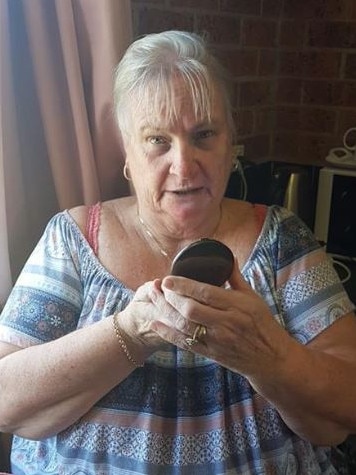Stabbing death a ‘jealous’ attack or ‘loss of control’?
CLOSING submissions have ended in the murder trial of a North Coast man charged over the stabbing death of his former spouse.

Police & Courts
Don't miss out on the headlines from Police & Courts. Followed categories will be added to My News.
WHETHER Paul Thomas Ryan killed his former spouse in an attack fuelled by “anger, jealousy and possessiveness”, or one in which he was “substantially impaired”, is being considered.
Tweed Heads man Paul Thomas Ryan, 66, has pleaded not guilty to murder over the November 12, 2018 stabbing death of Marie Van Beers.
His barrister, Jason Watts, is relying on a partial defence that Mr Ryan had an impairment of his ability to control himself and to understand events.
The judge-only trial has heard the physical elements of murder have been established, but the defence has argued Mr Ryan’s state of mind at the time of the killing should warrant a reduction of his charge to manslaughter.
In his closing submissions before the Supreme Court in Lismore on Wednesday, Crown prosecutor Brendan Campbell said there was “a long history of the accused being abusive towards the deceased”.

The court heard this involved two prior acts of physical violence and more frequent verbal abuse during their 37-year relationship.
In Ms Van Beers’ mind, the relationship had been over for years, although the pair were still living together in the Brett St, Tweed Heads flat where she was fatally stabbed, the court heard.
Mr Campbell said the victim was preparing to leave to be with her new partner; there were bags packed with her belongings in the unit the day of her death.
Mr Campbell said the accused refused to “accept the end of the relationship” and “was angry and felt aggrieved”.
The accused viewed his victim’s new relationship as “an affair”, the court heard.
The day of the stabbing, he attended court in accordance with a police application for an AVO to protect Ms Van Beers.
Mr Campbell argued the accused was “not in a confusional state” when he attended court or when we went to a nearby club twice that day.
He “left the club in a happy mood (and) walked the short distance home”, Mr Campbell said.
“In a very short period of time, he had fatally stabbed the deceased,” he said.
The court heard Ms Van Beers was stabbed some 35 times and sustained a “significant” blunt-force blow to the head.

When neighbours tried to access the locked unit to intervene, Mr Ryan told them to “f--k off” and Mr Campbell said this showed the accused had “significant understanding of the event and the consequences of his actions”.
“He’s not impaired … in a substantial way,” he said.
“It was his anger, jealousy and possessiveness that’s was the driving force of what occurred that day.”
Mr Watts relied on varying evidence of two forensic psychiatrists to argue Mr Ryan’s capacities were impaired.
The accused maintains he has no memory of the attack itself and Mr Watts said his neurocognitive disorder and mood disorder were relevant factors.
Mr Watts argued the killing involved a “frenzied violent attack”, suggesting a lack of control.
He said it was “wrong to say this is a relationship characterised by domestic violence”.
The court heard Mr Ryan’s impairments were likely influenced by “chemical injury” to his brain, a likely result of long-term alcohol and prescription medication abuse.
“All murder is horrific,” Mr Watts said.
“But of course there are instances which particularly arouse strong feeling in the community and it wouldn’t be appropriate, in my submission, that just because this offence fell into one of those categories – if your honour thought that it did – that a greater level of impairment be required.”
Justice Richard Button is considering his judgment.


